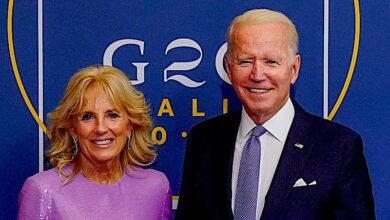Biden administration seeks to overturn laws that prohibit online censorship
The Biden administration is asking the Supreme Court to strike down laws that prevent Facebook and other social media from censoring political and religious speech.
The laws, passed in Texas and Florida, were heralded by free speech advocates and seen as models for other states battling online censorship. They prohibit Big Tech companies from banning users based on political viewpoints. As such, they restrict the ability of platforms like Facebook, Twitter, and YouTube to censor content even if such content violates the often confusing and dubious guidelines of the website.
The 11th Circuit Court of Appeals in Atlanta had blocked most of Florida’s law from coming into effect, arguing they violate the First Amendment.
Meanwhile, the 5th Circuit from New Orleans upheld the Texas law but left it on hold to allow time for a Supreme Court appeal.
In January, the Supreme Court postponed a decision on whether it would hear the cases, asking the U.S. Solicitor General to weigh in on the issue.
In a brief (pdf) filed on this week, The Biden administration through its Solicitor General Elizabeth Prelogar, stated that conflicting decisions from circuit courts over the Texas and Florida laws warrant a review by the Supreme Court.
The Supreme Court “should affirm the Eleventh Circuit and reverse the Fifth Circuit,” Ms. Prelogar said.
“The two laws differ in some respects, but both restrict platforms’ ability to engage in content moderation by removing, editing, or arranging user-generated content; require platforms to provide individualized explanations for certain forms of content moderation; and require general disclosures about platforms’ content moderation practices,” the brief said.
“When a social-media platform selects, edits, and arranges third-party speech for presentation to the public, it engages in activity protected by the First Amendment.”
The Court could decide on whether it would hear the lawsuits as soon as next month.
The laws central to the cases are Texas House Bill (HB) 20 signed into law in September 2021 and Florida’s Senate Bill (SB) 7072 signed into law in May 2021.
Texas’ HB 20 makes it unlawful for tech companies to remove or restrict content based on “the viewpoint of the user or another person” or “the viewpoint represented in the user’s expression.”
HB 20 applies to platforms that have over 50 million active monthly users in the United States. It also requires platforms to establish procedures that would allow users to appeal any content removal done by the network.
Florida’s SB 7072 “prohibits a social media platform from willfully deplatforming a candidate for political office,” according to the bill summary.
Violating the rule would allow the Florida Elections Commission “to fine a social media platform $250,000 per day for deplatforming a candidate for statewide office and $25,000 per day for deplatforming any other candidate.”
The Governors of Florida and Texas had earlier supported the respective laws from their states, arguing that such measures are necessary to ensure that conservative voices are not silenced.
“If Big Tech censors enforce rules inconsistently, to discriminate in favor of the dominant Silicon Valley ideology, they will now be held accountable,” Florida’s Republican Governor Ron DeSantis said about Senate Bill 7072 while signing it into law back in May 2021.
When Texas’ Republican Governor Greg Abbott signed HB 20 in September 2021, he pointed out that social media websites are “our modern-day public square” where “information should be able to flow freely.”
“But there is a dangerous movement by social media companies to silence conservative viewpoints and ideas. That is wrong, and we will not allow it in Texas.”
–Wire services








